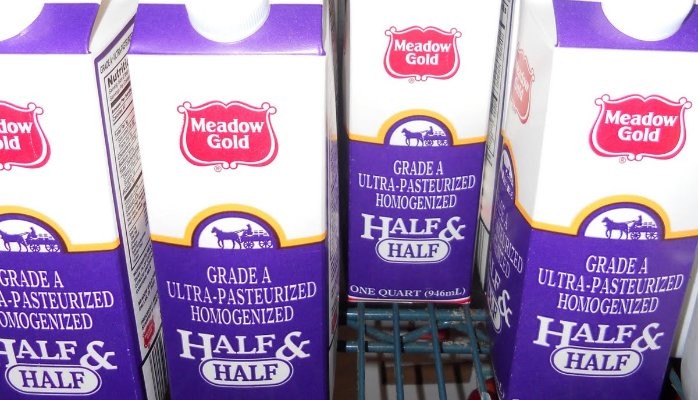For British Readers: Half and Half and Of Counsel

They say that England and America are two countries separated by a common language. There are many examples of this. Ask an American what a Zimmer Frame is and you will get a blank stare.
Americans call it a “walker.”
In America, if you want to boil water, you put a pot on the stove. This is not the case in the United Kingdom where you need something called a cooker. Strangely, both look the same.
British cooks are often mystified when a recipe calls for “Half and Half.” This exotic concoction is unavailable in British grocery stores. Research will reveal that this is a dairy drink consisting of cream and milk. The name is somewhat inaccurate. The Half and Half sold in U.S. grocery stores only contains 20% cream, not 50%.
In American legal practice,‘of counsel’ refers to an attorney who has a relationship with a law firm or an organization, but is not an associate or a partner.” Usually this will be a senior attorney, an attorney who advises the firm as an entity, or someone who handles a specific area for the firm, such as appeals.
In the United Kingdom the term is, to borrow a phrase from Mary, Queen of Scots, “most unknown.” This is not entirely surprising since the structure of the legal profession in the United Kingdom is radically different from that of the United States. In the United Kingdom there are solicitors and barristers with only the latter (theoretically) appearing in court.
In the United States, all admitted attorneys (again, with a few exceptions) have the right of audience. Commonwealth countries follow the U.K. model. The real question is, why did the Americans choose a different path? After the American revolution, judges rode circuit accompanied by a copy of Blackstone’s Commentaries on the Laws of England. English law, at least as retold by Blackstone, was American law, with a few accommodations due to the lack of a king. But somehow the bifurcation of the English bar was overlooked.
This question bothered me while ordering coffee in a Starbucks in Bahrain. Prior to 1971, Bahrain was a U.K. protectorate, its foreign affairs managed by London. Walk into any Starbucks in North America and you will find pitchers of Half and Half. Asking for “cream and sugar” for your coffee in Bahrain--and the U.K. as well--will invariably draw an inquiry about milk. But milk is not Half and Half. To be fair, a request for “cream” for your coffee in the U.S. will usually result in the provision of Half and Half, except in Wisconsin, a dairy state. There these important distinctions are preserved.
Half and Half is also known in Canada, but there milk is sold in bags. Canada follows the British bifurcated bar practice, however. So assuming that the availability of Half and Half in a country is an indicator of that country’s legal practice structure would be an error.
Canadian lawyers are also familiar with the “of counsel” concept.
Given how law firms can crash and burn (Dewey? Heenan Blaikie?), sometimes not being a partner is quite an advantage, as former Dewey attorneys (and their new law firms) are finding out. Being “of counsel” is a good, flexible compromise. The American Bar Association’s ethical rules even permit an attorney to be “of counsel” to more than one law firm at a time (but not more than two).
Confusing legal structures or dairy products happens often when cultures clash. Down the street, a U.S. Navy sailor was unsuccessfully trying to convince a store clerk that the milk he had purchased had gone bad. The clerk pointed out that the sailor hadn’t purchased milk at all, but laban.
Try to find that in America.